2024-2025 Capstone Projects
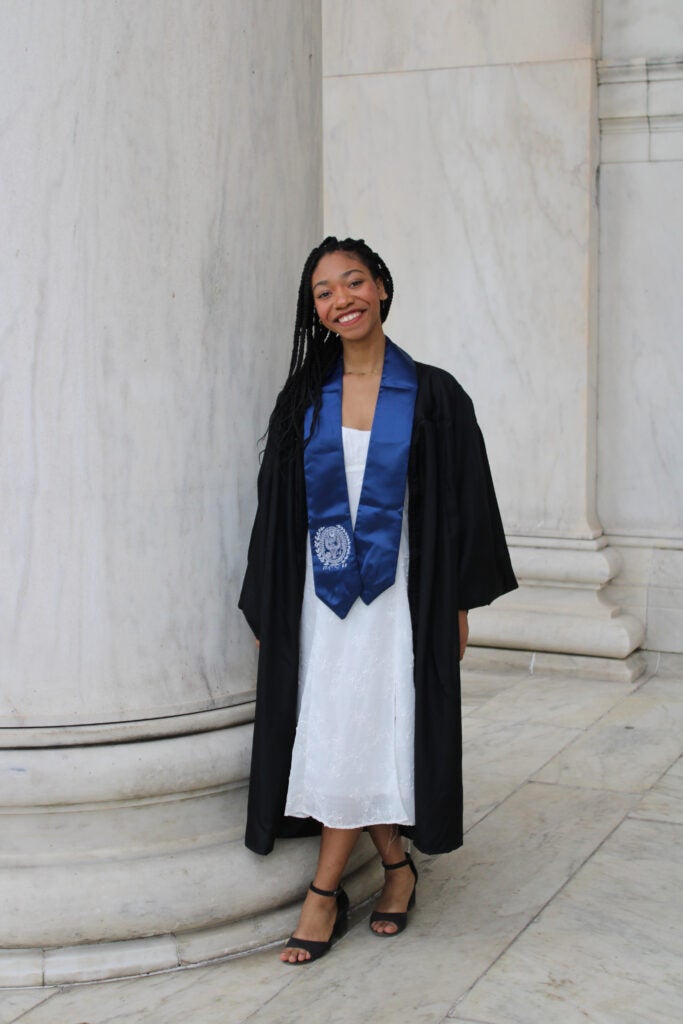
Bilquisu Abdullah (CAS ’25)
A Witch Hunt on Women Healers: The Erasure of Black Midwifery in Pittsburgh During the Early Twentieth Century
Personal Bio: Bilquisu Abdullah is a Senior studying Women and Gender Studies with a minor in Medical Humanities. She hopes to work in reproductive and sexual public healthcare.
Project Description: This project honors the legacies of Black female healers and highlights the historical ways in which their roles in society have been minimized. By centering the stories of Black women healers in Pittsburgh, traditional midwifery and resistance to systemic oppression, my project aims to inspire new understandings of community health work in places with drastic Black maternal mortality disparities such as Pittsburgh.
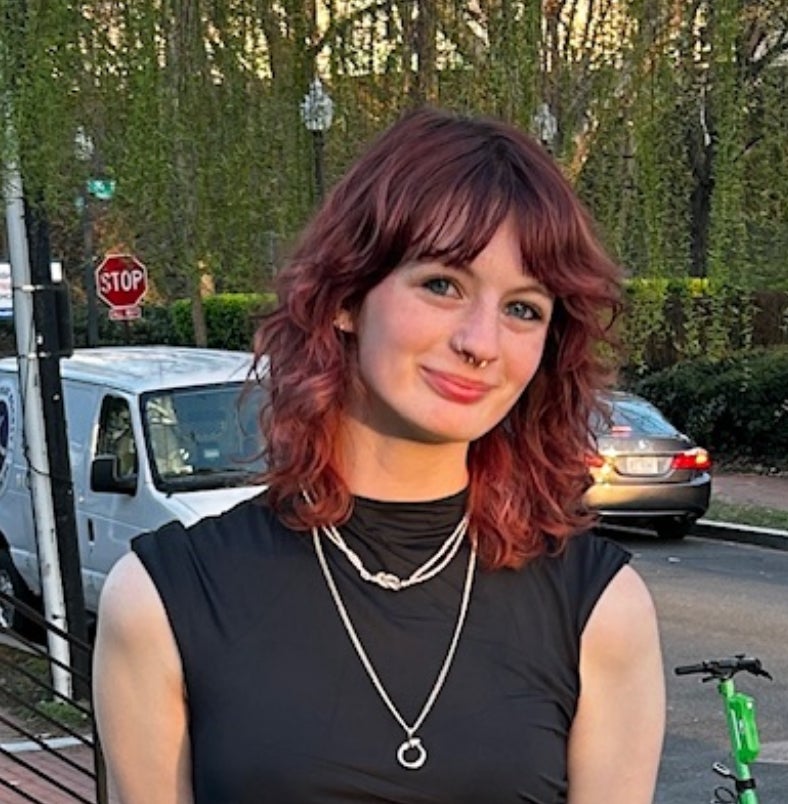
Molly Kenney (CAS ’25)
Converging Crises: Ethical and Ecological Implications of Myxomatosis as a Population Control
Personal Bio: Molly Kenney (they/she) is a senior in the College of Arts and Sciences studying Pre-Veterinary Biology and minoring in Medical Humanities and Classical Studies. Outside of these studies, they are interested in paleobiology as well as the portrayal of medical history through physical and dramatic arts.
Project Description: My project critically examines the use of the myxoma virus to manage invasive European rabbit populations, particularly in Australia, the UK, and Chile. While initially celebrated as a scientific breakthrough for curbing agricultural damage and restoring ecosystems, the virus causes prolonged, painful deaths in rabbits. It has led to unintended ecological consequences, such as predator disruption and viral spillover to pets. Framed through the One Health paradigm, the paper argues that such biocontrol strategies prioritize human interests at the expense of animal welfare and ecosystem stability and advocates for more ethical, non-lethal, and sustainable approaches to managing invasive species.

Anisha Kumar (CAS ’26)
Low Metabolic Capacity, High Metabolic Load: Polycystic Ovary Syndrome (PCOS) in the Global South Asian and Indigenous Australian Populations
Personal Bio: Anisha Kumar is a junior in the College majoring in Neurobiology and minoring in Medical Humanities. She works as a medical assistant at a dermatology clinic in Virginia and will continue to do so next year. After graduation, she plans to apply to medical school.
Project Description: This project aims to explore possible evolutionary explanations for the development of Polycystic Ovary Syndrome (PCOS) in particular groups, particularly through the context of historical starvation and resulting low lean mass in these populations. The two main groups explored in this project are the global South Asian population and the indigenous Australian population, both of which are known to have high rates of PCOS. I argue that the low metabolic capacity, high metabolic load model used to understand why populations of the world have high diabetes prevalence, which includes South Asians and indigenous Australians, should be extended to understanding rising PCOS rates.
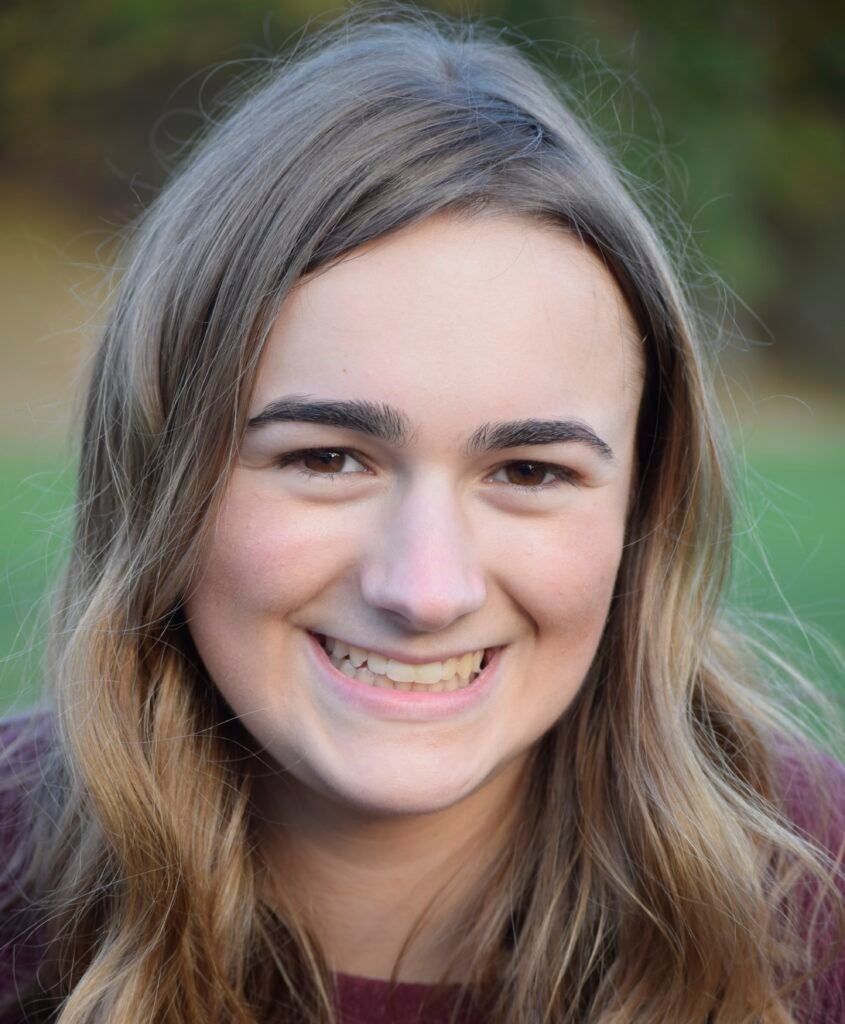
Amber Mickelson (CAS ’25)
Messages and Mass Shootings: Race, Age, and Mental Illness in Media Coverage of Gun Violence
Personal Bio: Amber Mickelson is a senior in the College majoring in Neurobiology with a minor in Medical Humanities. Outside of the classroom, she studies Dengue and Zika virus with the Department of Microbiology and Immunology. In her free time, she grills burgers with the Georgetown University Grilling Society. Amber will be attending the Georgetown University School of Medicine starting this fall.
Project Description: Physicians and healthcare workers are on the forefront of calling for the recognition of gun violence as a public health crisis. Media coverage of mass shootings is known to considerably shape public opinion of mental illness through what is called agenda setting theory, which argues that the messages the public receives through mass media shapes beliefs and attitudes towards particular events or issues. I examine how factors such as mental illness, race, age, and political leaning of a newspaper intersect to inform discussions surrounding gun violence. My analysis revealed new findings on how the demographics of the shooter and political leaning of the news source influence messages sent to readers concerning mass shooters and mental health.

Betsy Regan (CAS ’25)
From Buck v. Bell to ‘Newgenics’: Disability, Reproduction, and the Legacy of Eugenics
Personal Bio: Betsy Regan is a senior in the College from Lake Forest, Illinois, majoring in Psychology with minors in Disability Studies and Medical Humanities
Project Description: The project explores the lasting impact of the 1927 Supreme Court decision that upheld the forced sterilization of those deemed “unfit” to reproduce. The project argues that contemporary reproductive technologies and genetic screening continue to reflect the same discriminatory values that shaped early 20th-century eugenics.
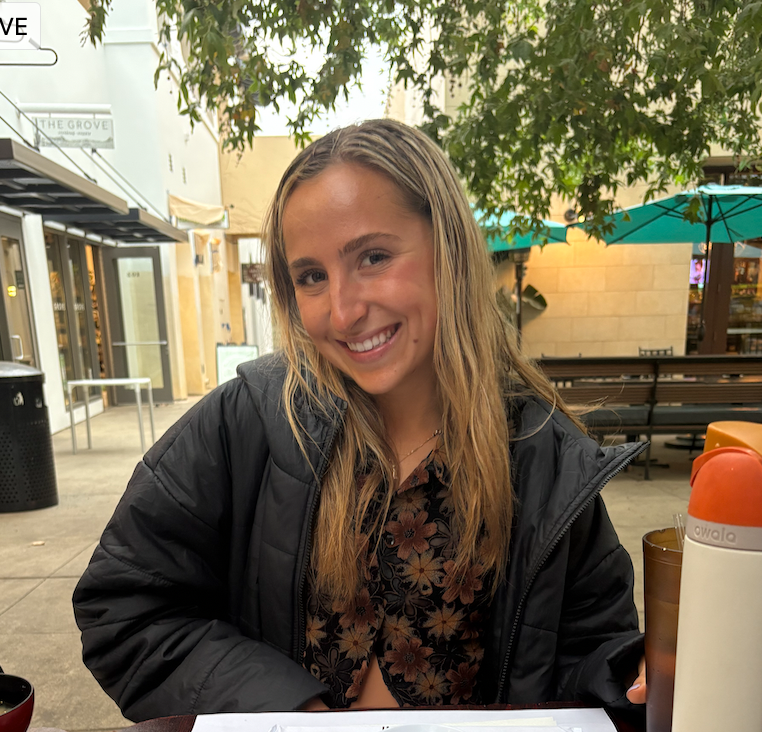
Chloe Scrimgeour (CAS ’25)
Improving Health Literacy for New Parents: We Can Do Better!
Personal Bio: Chloe Scrimgeour, a psychology major and medical humanities minor with a strong interest in public health, health communication, and how creative approaches can help bridge gaps in understanding. I’m especially passionate about maternal and child health, and how something as simple as how we share information can impact real lives. I’m also on the cross country and track team at Georgetown.
Project Description: My project explores how health literacy, especially among new parents, affects outcomes like breastfeeding and maternal health, with a focus on the Southern and Midwestern U.S. I’m looking at how plain language and creative tools like murals, storytelling, and theater can be used to share health information more effectively. The goal is to propose community-centered strategies that are inclusive, accessible, and culturally relevant.
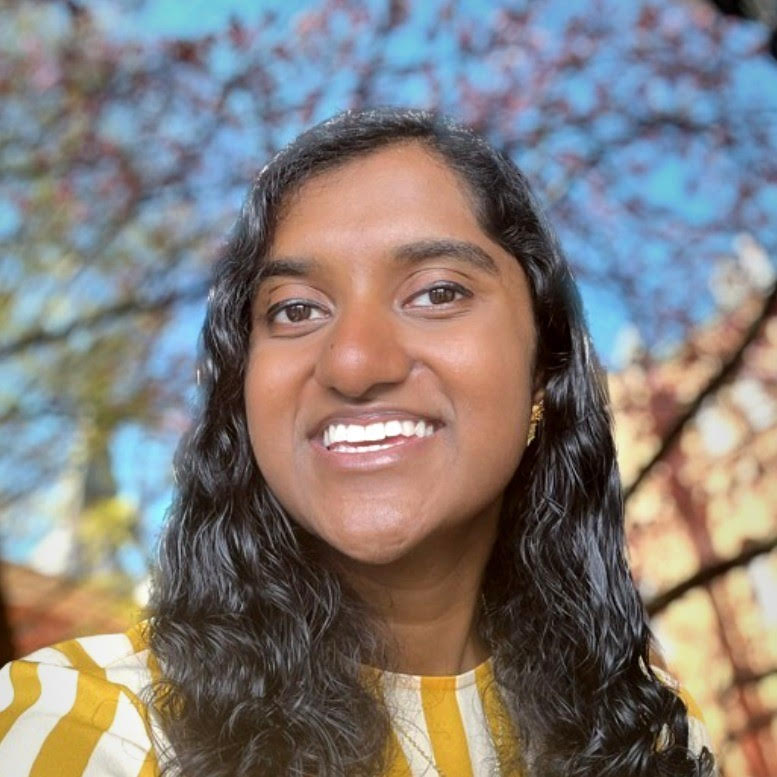
Nidhi Somineni (CAS ’25)
“A time bomb ticking”: The multimodal metaphor in Marlon Riggs’ Tongues Untied
Personal Bio: Nidhi Somineni is a fourth-year undergraduate student in the Georgetown College of Arts and Sciences majoring in Linguistics with minors in Medical Humanities and Anthropology. She is a sociolinguist interested in identity construction, narrative, and metaphor. Her research focuses on social constructions of health and health communication, language documentation and revitalization, and social media discourse.
Project Description: This paper applies Forceville’s (2009, 2024) framework of the multimodal metaphor to the video essay experimental documentary film Tongues Untied (1989). Directed, produced, and narrated by Marlon Riggs, a Black gay filmmaker and activist, the film focuses on the shame that silences the Black queer community, specifically during the HIV/AIDS epidemic in the 1980s. The two multimodal metaphors discussed in this paper are AIDS as a weapon and AIDS as slavery.
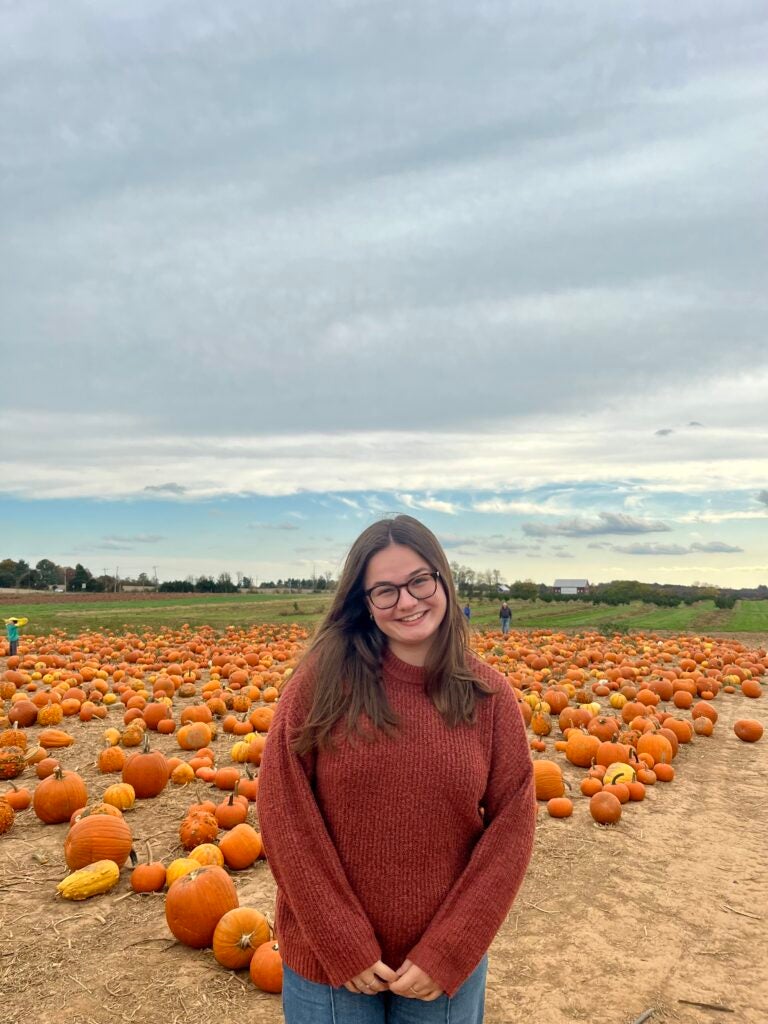
Emily Taylor (CAS ’25)
Quickening Control: Abortion Practices in The Pre-Modern United States, 1740-1880
Personal Bio: As a Biology of Global Health major and Medical Humanities minor, I am eager to provide patient-centered care as a future health professional. My research interests lie in quality of life considerations, oncology, and the history of medicine. My time in the Medical Humanities program has granted me a broader lens and deeper appreciation of caring for others that I am excited to take with me as I leave Georgetown and plan to attend Physician Assistant school.
Project Description: My project traces the rise of modern medicine and the fall of female autonomy as gender roles shifted between 1740 and 1880. Specifically, it examines newspaper sources to illuminate public perception on abortion throughout time. Altogether, my project demonstrates that men in power throughout the nineteenth century exercised reproductive control over women, altering who could obtain abortions, who administered them, and how the public accepted them.
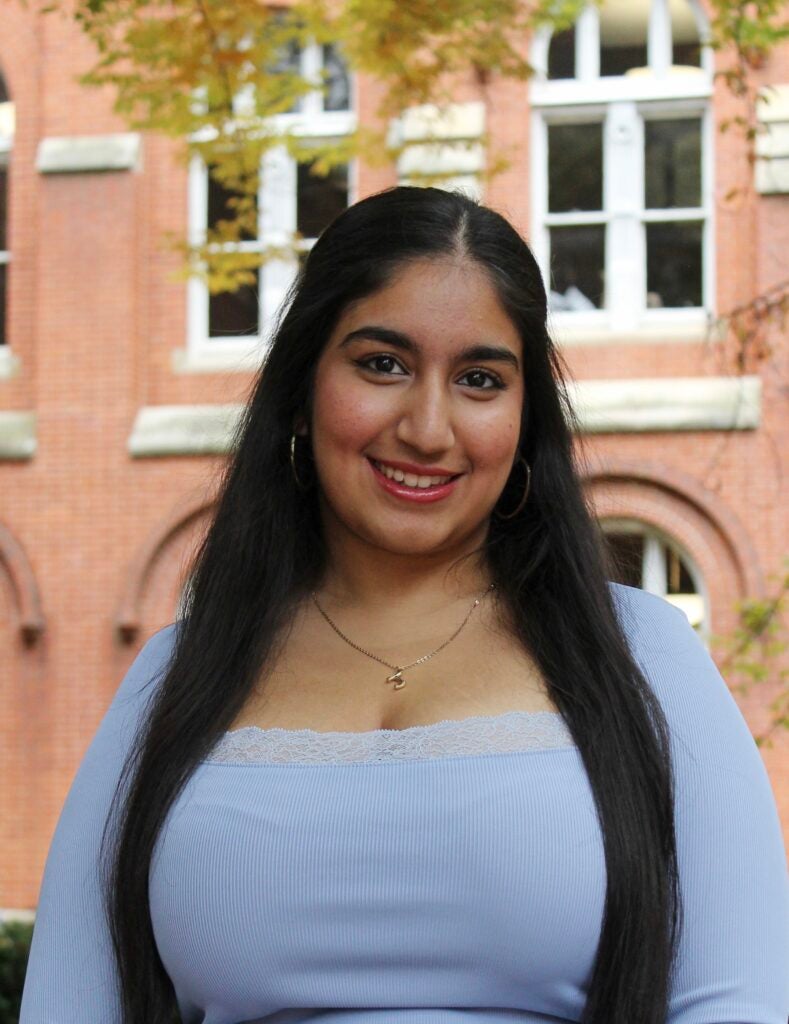
Jaskeerat Kaur Thakral (CAS ’25)
Epidemic Psychology: Risk Perception, Intolerance of Uncertainty, and Cultural Dimensions of Psychological Distress During COVID-19
Personal Bio: Jaskeerat Kaur Thakral is an undergraduate senior in Georgetown’s College of Arts and Sciences. She is currently pursuing a Bachelor of Science in Biology on the pre-med track, with minors in Medical Humanities and Science, Technology, and International Affairs. Hailing from Bangkok, Thailand, Jaskee is interested in a global perspective in healthcare and medicine, and hopes to further explore the liminal space between interdisciplinary fields like anthropology, psychology, international relations, and medicine. These interdisciplinary global health interests led to Thakral’s independent research into the field of epidemic psychology, most recently culminating in a project investigating the sociocultural influences of psychological responses to the COVID-19 pandemic in India, which was published in an IGI Global journal in February 2024.
Project Description: This capstone project explores how psychological distress emerged and spread during the COVID-19 pandemic, focusing on the roles of risk perception, intolerance of uncertainty, and cultural values. Using Philip Strong’s model of epidemic psychology as a foundation, the project analyzes how fear, panic, and stigma became widespread social responses—not just individual ones. It also investigates how different cultural contexts, particularly Japan’s collectivism and high uncertainty avoidance, shaped both emotional reactions and public behavior. By combining psychological theory with global and cultural analysis, this research highlights the importance of designing public health and mental health strategies that are culturally informed and psychologically responsive in times of crisis.

Nancy Britten (CAS ’26)
Recipe Networks: An Audio and Visual Exploration of Women’s Medical Knowledge in Early Modern British Manuscripts
Personal Bio: I am a third-year undergraduate history student from the University of Edinburgh, currently undertaking an exchange year here at Georgetown University, where I have been studying as a junior in the CAS since August. This semester I took the medical humanities senior capstone class as a way of further exploring my interest in medical history.
Project Description: This project, in the form of a six-part podcast series examining the role of women in seventeenth-century British medicine, focuses on their medical writings, household healing practices, and the dissemination of medical knowledge through recipe books. Through discussions with historians and academics in the field, complemented by digitised primary sources, I explore how women documented, adapted, and transmitted medical information within domestic and social networks, positioning them as active contributors to medical knowledge production.
This project contributes to scholarship in gender history, medical humanities, and food history, highlighting the domestic sphere as a site of medical knowledge production and challenging conventional narratives about the history of medicine.
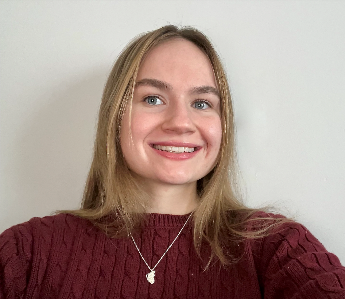
Kayla Glynn (CAS ’26)
Gladys Tantaquidgeon and Her Legacy
Personal Bio: My name is Kayla Glynn, and I am a junior in the College of Arts and Sciences studying mathematics and minoring in biology. I am interested in traditional Native American medicine and ecology. After college, I plan on working in the banking industry!
Project Description: My project is about Dr. Gladys Iola Tantaquidgeon, a Mohegan Nanu, or medicine woman. Throughout her life, Gladys fought for the preservation of traditional Mohegan healing practices. She studied Anthropology and Ethnobotany at the University of Pennsylvania and published a research paper on the medicinal practices of different northeastern Algonkian tribes. Her work revolutionized Mohegan medicine and introduced matriarchal Native healing into academic discourse.
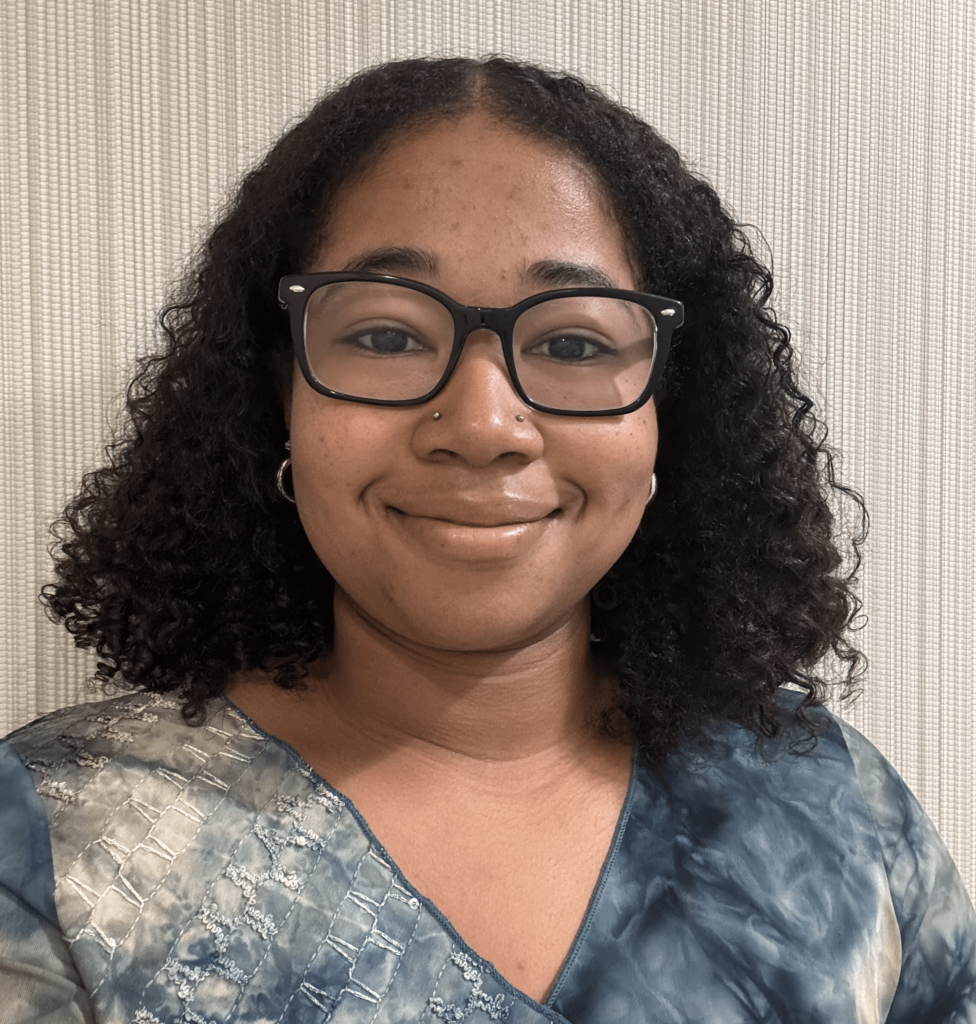
Taylor Crosland (SOH ’25)
An Archival Study of the Slave Narratives Collection and African American Herbal Treatments
Personal Bio: Taylor Crosland (she/her) is a senior at Georgetown University’s School of Health, majoring in Human Science with a minor in Medical Humanities. She plans to pursue an MD and MPH to combine her passions for public health research and patient-centered care. In her free time, Taylor enjoys reading, writing fiction, and listening to podcasts.
Project Description: The Slave Narratives Collection was established as part of the Federal Writers’ Project and was active from 1936 to 1938. Twenty-four states participated, resulting in approximately 2,900 first-person accounts of slavery and 500 photographs of formerly enslaved individuals. These transcripts include detailed descriptions of the interviewees’ physical appearances, family histories, education, income, occupations, political views, religious beliefs, and more. This study aims to examine the narratives of these African Americans to better understand their herbal treatments from the late 19th century. Additionally, it will explore the biological relevance of these herbs and how they are currently being utilized in modern medicine and scientific research.

